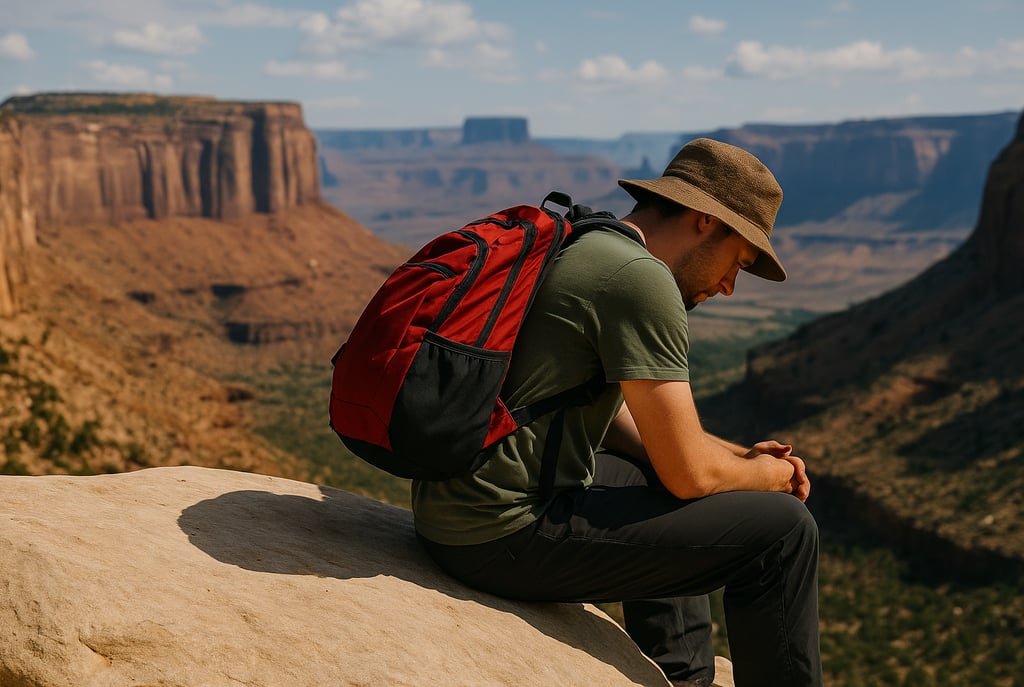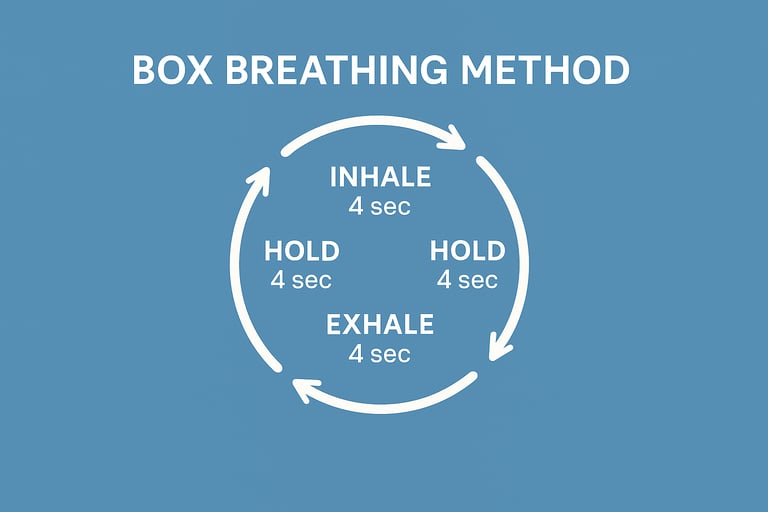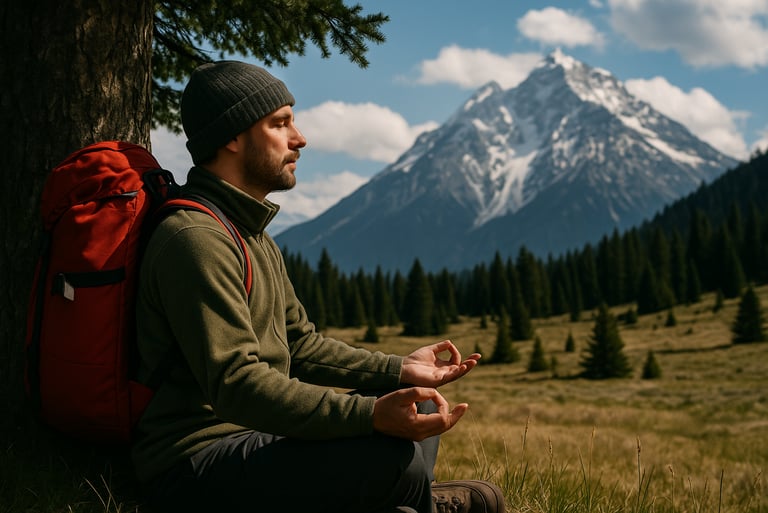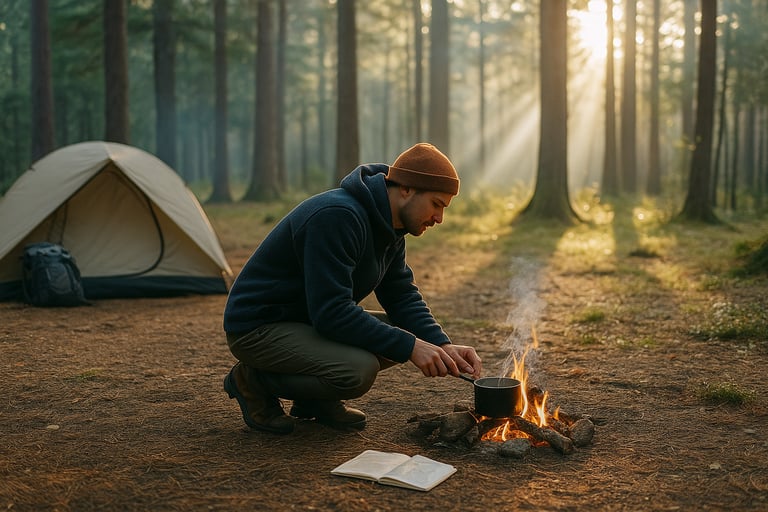Mental Fatigue in Survival Scenarios: Recognizing Warning Signs and Coping Tools
Mental fatigue in survival situations can lead to poor decisions and increased risk. Learn the warning signs of survival stress and discover practical mental resilience tools to stay sharp and safe in the wild.


Mental Fatigue in Survival Scenarios: Recognizing Warning Signs and Coping Tools
Understanding Mental Fatigue in the Wilderness
Mental fatigue in survival situations is more than just being tired, it’s the slow draining of your decision-making ability, awareness, and emotional control. When you're lost, cold, hungry, or under pressure, your brain begins to operate in overdrive. Over time, this stress takes a toll, which can be dangerous when clear thinking is your most valuable survival tool.
Whether you’re hiking deep into the backcountry or stuck in an unplanned emergency, knowing how to identify and manage mental exhaustion can literally be the difference between making it out safely or putting yourself at greater risk.
Common Signs of Survival-Related Mental Fatigue
Mental fatigue often builds up gradually, so it’s easy to ignore until it becomes a serious problem. You may find yourself zoning out, repeating the same tasks, or struggling with simple decisions. In the wild, that could mean walking in circles, forgetting where you placed gear, or misjudging distances.
Other common signs include irritability, tunnel vision, trouble focusing, emotional outbursts, or even a sense of hopelessness. If you or someone in your group seems off or overly impulsive, it’s time to pause and reassess.
How Mental Fatigue Affects Decision-Making in Survival
When your brain is overloaded, your ability to process information, assess risk, and adapt quickly begins to break down. This can lead to poor choices like leaving shelter in bad weather, rationing water improperly, or panicking during an animal encounter.
In wilderness survival, mental clarity is as important as physical endurance. If you're struggling to think clearly, practicing techniques from Decision-Making Under Pressure: Sharpening Mental Clarity in Survival Situations can help you regain control and avoid rash choices in high-stakes moments. The ability to stay calm, flexible, and responsive is essential for navigating danger and staying alive.
Tools and Techniques for Mental Resilience in Survival
One of the best ways to fight off mental fatigue in survival scenarios is to build small routines that re-center you. Taking five minutes to sit down, hydrate, breathe deeply, and recheck your plan can restore clarity. Use techniques like box breathing (inhale for four seconds, hold for four, exhale for four, hold for four) to reduce anxiety and sharpen focus.
Creating a mental checklist or repeating simple mantras can also help ground you. These micro-breaks give your mind a moment to reset, especially during high-stress tasks like navigating, making shelter, or treating injuries.
For more calming strategies, check out Mindfulness in Nature: How to Stay Present and Focused in the Wilderness, which explores how staying mentally anchored can improve focus and endurance.
The Role of Sleep, Nutrition, and Hydration
Even in survival conditions, rest, food, and water directly influence mental strength. A dehydrated or malnourished brain will struggle to think clearly. Whenever possible, prioritize short rest periods, drink regularly, and consume even small amounts of food. These actions may seem secondary when danger feels imminent, but they are critical to restoring brain function.
Sleep deprivation, in particular, has a compounding effect. If you're going without sleep for over 24 hours, try to nap for even 20–30 minutes to restore some mental clarity.
Staying Mentally Strong When You're Alone
Solo survival is one of the biggest mental challenges outdoors. Without others to talk to or ground you, the risk of spiraling into despair or mental fog is higher. In these situations, verbalizing your plans aloud, tracking your progress, and giving yourself short-term goals ("Make it to that ridge," "Get fire started before dark") can help keep your brain engaged and focused.
Also, keeping a small notebook and writing down your steps or decisions can reduce the mental load and help spot mistakes before they become dangerous.
For more information on surviving alone in the wild, check out Solo Survival: Mental Strategies for Staying Strong When You Are Alone in the Wild, which dives deeper into managing isolation and staying mentally grounded when you're alone in a survival situation.
When to Stop and Reset Your Mental State
If you catch yourself making careless decisions, forgetting obvious tasks, or feeling mentally foggy, stop immediately. Sit down, breathe, and reassess. Even five minutes of conscious rest, deep breathing, or quietly drinking water can bring you back from the edge of a breakdown.
In group survival situations, take turns leading and encourage others to speak up if they notice changes in behavior. A team that watches out for each other's mental health is far stronger than one that just powers through blindly.






© 2025. All rights reserved About | Privacy Policy | Terms and Conditions | Affiliate Disclosure | Disclaimer


